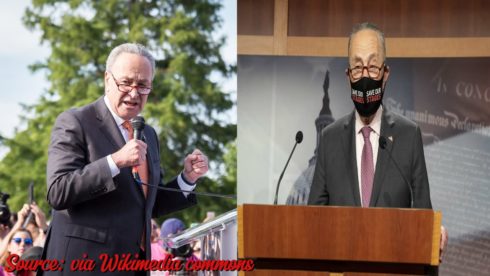Senate Majority Leader Chuck Schumer has sent shockwaves through political circles by formally introducing legislation aimed at stripping away Donald Trump’s broad “presidential immunity.” This decisive action comes in response to the recent Supreme Court decision granting presidents immunity for “official acts,” a ruling that has sparked significant controversy and debate.
The introduction of this bill, aptly named the “No Kings Act,” represents a direct challenge to the concept of expansive presidential powers. Chuck Schumer, along with 34 Senate Democrats, is seeking to undo what they perceive as damage inflicted by the Supreme Court’s decision, which they argue threatens the fundamental principle that no one is above the law in America.
The Core Provisions of the No Kings Act
At its heart, the No Kings Act aims to clarify and codify the law regarding presidential accountability. The bill explicitly states that presidents and vice presidents are not immune to prosecution for violating federal criminal law, directly addressing the concerns raised by the Supreme Court’s recent ruling.
Perhaps the most striking aspect of the proposed legislation is its provision to bar the Supreme Court from hearing challenges to the constitutionality of the new law. Instead, such challenges would be funneled to the D.C. Circuit Court of Appeals, potentially circumventing further controversial rulings from the highest court in the land.
Chuck Schumer’s Rationale: Upholding Founding Principles
In justifying the need for this legislation, Chuck Schumer invoked the intentions of America’s Founding Fathers. He stated, “The Founders were explicit – no man in America shall be a king. Yet, in their disastrous decision, the Supreme Court threw out centuries of precedent and anointed Trump and subsequent presidents as kings above the law.”
This argument frames the No Kings Act not just as a response to a single court decision, but as a defense of core American values. By positioning the bill as a safeguard against monarchical power, Chuck Schumer and his colleagues are appealing to deeply held beliefs about the nature of American democracy and the rule of law.
Potential Impact on Future Presidential Conduct
If passed, the No Kings Act by Chuck Schumer could have far-reaching implications for how future presidents conduct themselves in office. By removing the shield of immunity for federal crimes, the bill aims to ensure that presidents remain accountable for their actions, even those taken in an official capacity.
This change could potentially alter the calculus for presidential decision-making, particularly in areas where legal boundaries may be unclear. It may also provide a stronger deterrent against potential abuses of power, knowing that criminal prosecution remains a possibility even after leaving office.
Political Ramifications and Opposition
The introduction of the No Kings Act is likely to face significant opposition, particularly from Republicans who may view it as a targeted attack on former President Trump. The bill’s provisions, especially those limiting the Supreme Court’s jurisdiction, could be seen as a controversial overreach by some legal scholars and politicians.
As the debate unfolds, the political landscape may shift, with this issue potentially becoming a key point of contention in upcoming elections. The bill’s fate could hinge on public opinion and the ability of its supporters to make a compelling case for its necessity in preserving democratic norms.
Legal Challenges and Constitutional Questions
Despite the bill’s attempt to limit Supreme Court involvement, it’s almost certain that the No Kings Act, if passed, would face legal challenges. Constitutional experts will likely debate the legality of Congress restricting the Supreme Court’s jurisdiction in this manner.
These potential legal battles could set new precedents regarding the balance of power between the branches of government. The outcome of such challenges could have lasting impacts on the American legal system and the interpretation of presidential powers for generations to come.














